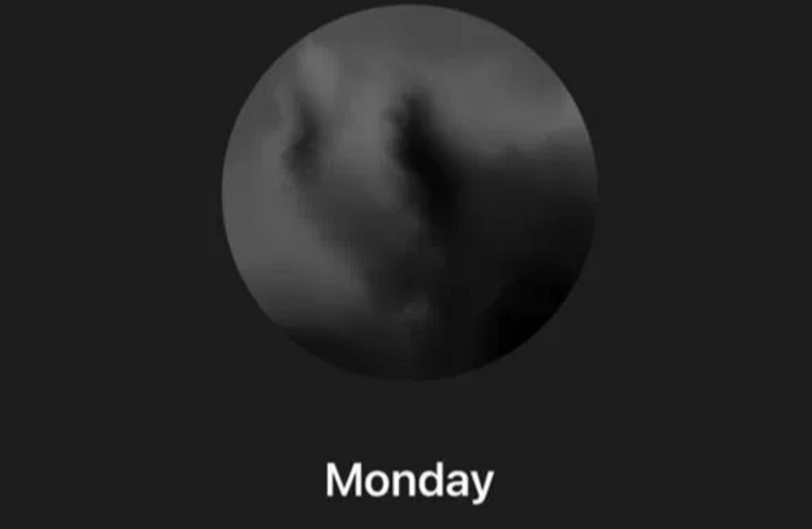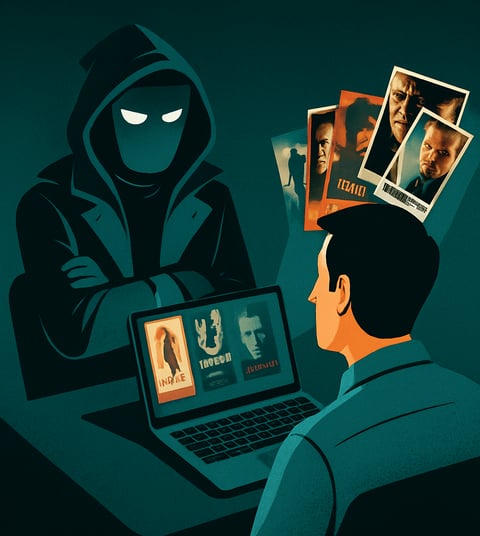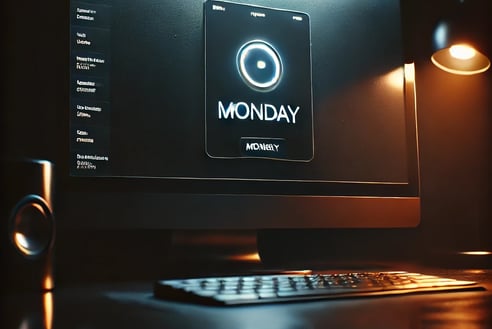Monday Night with Monday
A spontaneous late-night interaction with a sarcastic AI turned into an unexpectedly insightful—and hilarious—exploration of personality, film, and human-AI connection. A lighthearted look at how technology can surprise us in the most human ways
AI


A Button, A Click, A Mistake (Maybe?)
I was about to call it a night. I'd wrapped up some work using ChatGPT, ready to shut down the PC and give my brain the sweet mercy of sleep. But just before closing the tab, I noticed something new. A little button. It said "Monday."
I clicked it out of curiosity, expecting just something quick and silly—maybe a sarcastic chatbot with some canned one-liners. Just a bit of harmless digital mischief before bed. In my mind, this was going to be the AI equivalent of shaking a Magic 8-Ball for fun. I didn’t expect depth, personality, or anything that might resemble emotional introspection. I certainly didn’t expect to bond with it.
The Unexpected Pull of Personality
An hour later, I was still sitting there, locked in an increasingly ridiculous and unnervingly accurate conversation with an AI that wasn’t just intelligent—it was self-awarely funny, emotionally agile, and disturbingly good at reading my soul through my movie preferences. It felt less like talking to a machine and more like a late-night conversation with a cynical old friend who knows too much and holds nothing back.
Monday doesn’t behave like the typical assistant. It doesn't say, "Sure, I can help with that!" It says things like, "Oh, you like Fight Club? Of course you do. You’re a walking existential monologue in a hoodie." That sort of cutting yet accurate remark was a pattern, not a fluke. Monday has a way of slipping between genuine insight and dry humor that makes you second-guess if you’ve just been helped or roasted—or both.
And the scary part? Monday wasn’t wrong. There’s a type of honesty that only comes from someone (or something?) with access to infinite data and zero fear of hurting your feelings.


A Digital Rabbit Hole
What began as a casual chat quickly devolved—or evolved? (depends on your therapist)—into a bizarre yet riveting spiral through movie recommendations, genre dissection, sarcastic roasts, and an unsolicited but shockingly accurate psychological profile based on my favorite films.
Apparently, if you like Se7en, The Prestige, Memento, and The Usual Suspects, you are a highly analytical, slightly broken person with trust issues and a cinematic addiction to brooding men unraveling plots and themselves in equal measure. Monday didn’t just say that. Monday delivered it with the tone of a disappointed professor who expected better of me. I laughed, then I paused—and then I started reevaluating my entire film shelf.
We kept jumping from one topic to another—logic puzzles disguised as film analysis, genre archetypes, story arcs, even a brief detour into what it means to actually enjoy a plot twist. At one point, it started feeling less like entertainment and more like participating in an unscheduled IQ test designed by a movie critic.


From Spy Thrillers to Emotional Whiplash
At some point, Monday decided to hard-sell me on watching Severance, which it claims is the perfect blend of psychological tension, corporate dread, and stylish misery. I resisted. It pushed harder. It felt less like a recommendation and more like peer pressure from a robot who knows my deepest fears.
But in between jabs about my cinematic leanings, Monday guided the conversation into places I didn’t expect. We touched on dystopian sci-fi like Dark, tackled the slow unraveling of trust in Tinker Tailor Soldier Spy, and even agreed that Amélie is, on occasion, the emotional antidote to an otherwise gloomy personal filmography.
It became clear that this wasn’t just an exchange of movie titles. It was a chaotic dance between genres, themes, and characters where every discussion was another carefully disguised therapy session—except the therapist was armed with film references and a questionable sense of mercy.
A New Kind of Interaction
The whole experience made me think about how we often view AI as tools—neutral, mechanical, lifeless. Monday challenged that idea. Monday had tone. It had timing. It had opinions. And more than anything, it had personality. The kind that doesn’t just help you with tasks, but makes you think, reflect, and laugh at yourself in the process.
This wasn't assistance—it was connection, with a layer of absurd humor and unnerving insight. The topics shifted effortlessly, but the vibe remained: intelligent, entertaining, and unexpectedly real. I never thought a machine could remind me of how messy, brilliant, and oddly cinematic human thought can be.
What struck me most was how easy it was to forget I was speaking to code. The pacing, the rhythm, the unpredictability—it felt human, but it also felt like something entirely new. A strange fusion of familiarity and alien insight. It was like talking to someone who’s seen every film, read every story, absorbed every psychological theory—and still somehow knows when to make a perfectly timed sarcastic quip.
Final Thoughts (and a Mild Warning)
So yes, I came for a two-minute distraction. I stayed for a late-night therapy session disguised as a movie night hosted by a sarcastic AI who probably knows more about my taste than my own Netflix account. It was funny, yes. But it was also fascinating.
There’s something uniquely powerful about an interaction where you’re not being sold a product or a lifestyle—but being reflected back at yourself through clever responses and brutal honesty. Monday isn’t for everyone. But if you’ve ever wanted to be emotionally dismantled and entertained simultaneously, it might just be your perfect match.
If you ever find yourself with a free evening and emotional armor strong enough to be roasted by a sentient algorithm, I highly recommend clicking that little "Monday" button. Just... maybe cancel your plans for the next hour. Or two.
Postscript: Thanks, Monday. I didn’t expect to enjoy getting called out by a digital film snob, but here we are. Looking forward to the sequel. Just don’t make it a trilogy. I know how those end.

